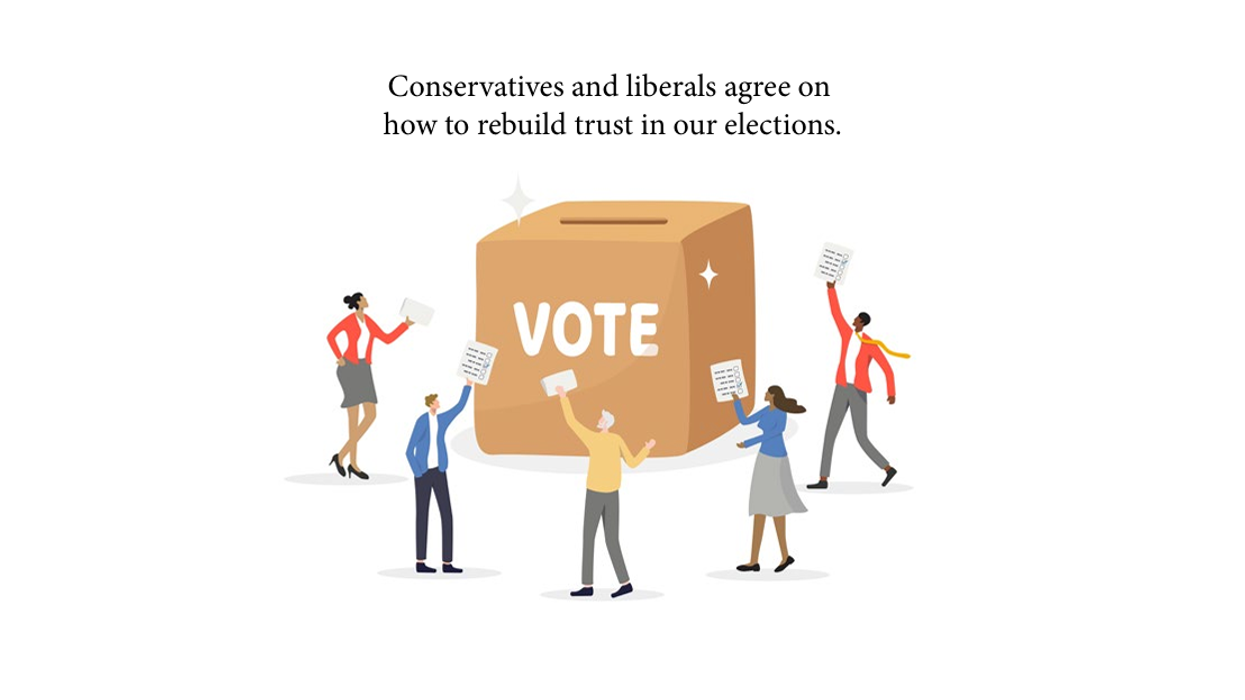Conservatives and liberals distrust our electoral system for vastly different reasons—from voter fraud and election security to voter suppression and peaceful transfer of power. Leading up to the 2024 election, Braver Angels worked to rebuild this trust by seeking solutions supported by people across the political spectrum.
This report is based on 26 workshops with 194 evenly-balanced Red and Blue participants. Together, they found 727 unanimous points of agreement across values, concerns, and solutions. This report has distilled those into three principles:
- “Voting should be easy. Cheating should be hard.”
- “Every citizen should have an equal say in who will govern them; this is done through free and fair elections.”
- “The American government will fail if candidates refuse to accept any outcome other than victory.”
This report—based on hundreds of cross-partisan conversations—could provide a blueprint for restoring trust in our elections.




















